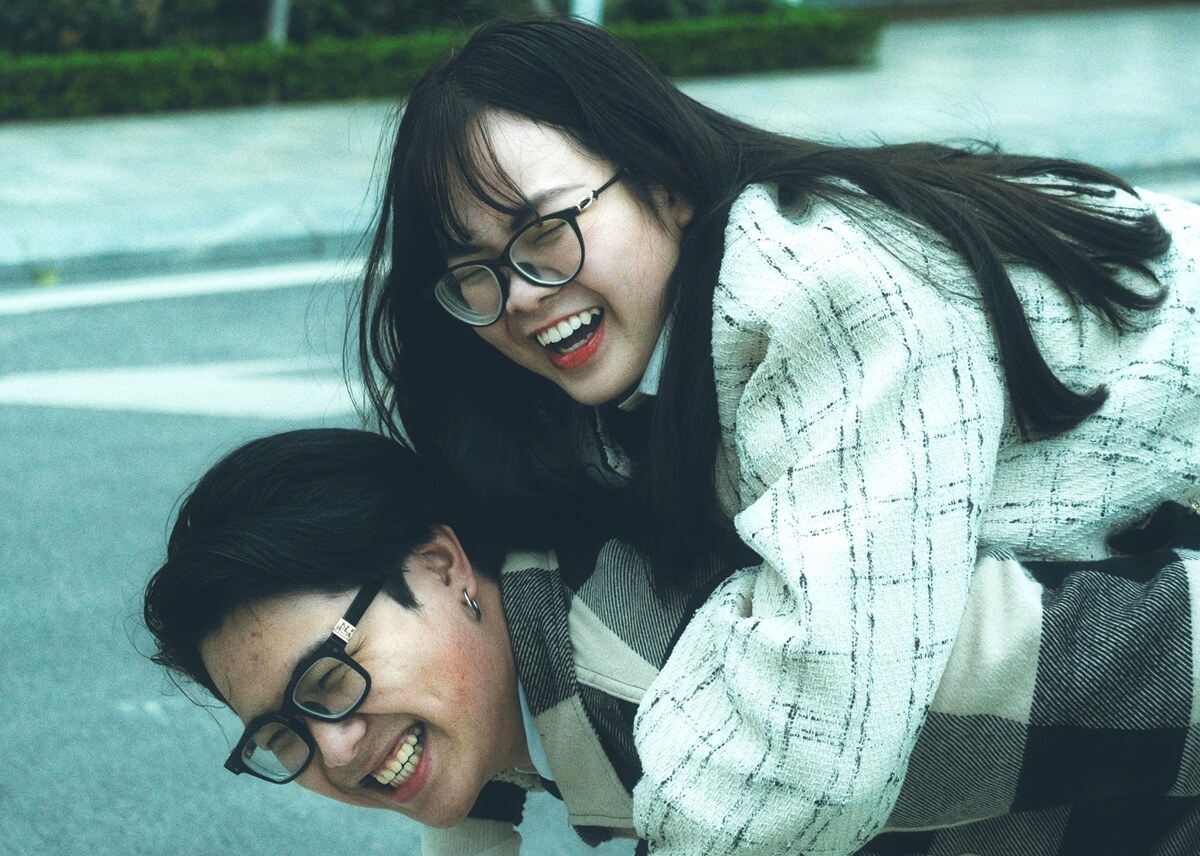
If you’ve seen even one Korean drama, you’ve probably heard characters throwing around words like oppa, hyung, noona, or unnie. These aren’t just random names or cute nicknames—they’re integral to Korean social interaction. In Korea, age and hierarchy strongly influence how people speak to each other. These titles are a quick way to show respect, express closeness, and define roles in relationships.
Oppa (오빠 {oppa})
Who says it?
Women talking to an older male—usually a few years older.
What does it mean?
It literally means “older brother,” but it’s also used for close older male friends or boyfriends. In K-dramas, you’ll often hear a woman use it to address her romantic interest; it adds a layer of warmth and familiarity.
Context matters:
A woman might call her actual older brother oppa, but she could also use it with a guy she’s close to or dating. It’s not inherently romantic, but depending on tone and relationship, it can carry flirtatious undertones.
Hyung (형 {hyeong})
Who says it?
Men talking to an older male.
What does it mean?
Also meaning “older brother,” but only used by men. It conveys a sense of loyalty, brotherhood, and informal respect.
In practice:
Hyung is widely used among guys in the military, at school, or in close male friend groups. It helps reinforce bonds, especially in male-dominated spaces.
Noona (누나 {nuna})
Who says it?
Men speaking to an older female.
What does it mean?
It means “older sister,” but it also applies to older female friends or even a girlfriend—if she’s older.
When it gets interesting:
The noona–dongsaeng dynamic in Korean pop culture has its own charm. It’s often playful, sometimes teasing, and can also take on romantic meaning depending on the situation.
Unnie (언니 {eonni})
Who says it?
Women talking to an older female.
What does it mean?
“Older sister.” It’s used for actual sisters and close older female friends. But unnie isn’t just about age—it’s about affection and closeness.
If a woman calls someone unnie, it typically means there’s a strong sense of trust, warmth, and emotional connection. Think of it as a term that blends respect and endearment.
Why These Titles Matter
In Korean culture, relationships are shaped by age, seniority, and social harmony. These titles help establish whether someone is close or distant, senior or junior. Using them wrong—or not at all—can come across as rude or awkward.
They carry emotional and cultural weight that’s hard to translate directly into English. They help define roles, express affection, and set boundaries. This is also why even K-pop idols and actors often refer to each other with these titles instead of using names—it’s second nature.
Bonus Terms
- Dongsaeng (동생 {dongsaeng}): Generic term for “younger sibling.” Used for both genders, but not usually as a direct address.
- Sunbae (선배 {seonbae}): Senior at school or work.
- Hubae (후배 {hubae}): Junior at school or work.
So, Should You Use These Terms?
If you’re learning Korean or interacting with Korean friends, yes—but carefully. These aren’t just vocabulary words; they reflect social awareness and cultural norms.
If you don’t know someone’s age or status, stick to polite language (jondaenmal {존댓말}). But as relationships grow, using these titles can help build intimacy and mutual respect.
Final Thought
Oppa, hyung, noona, and unnie aren’t just words. They’re part of the social glue that connects people in Korean culture. They express care, respect, affection, and familiarity all at once.
So next time you hear one of these in a drama, listen closely—it might reveal more than the subtitles ever could.



